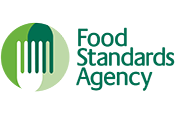Starting and running a food business
Food allergies, food intolerances and labelling
Some people have an allergy or intolerance to certain types of food. They need enough information about what they eat to help them avoid these foods.
Food businesses in the retail and catering sector are required by law to provide allergen information to consumers and follow the relevant labelling rules. They must:
- provide allergen information for prepacked and non-prepacked food and drink products
- handle and manage food allergens effectively in food preparation
- make sure that staff receive training on allergens
List of allergens in food - 14 major food allergens
Any type of food can cause a reaction, but some are more likely to than others. There are 14 major allergens which food businesses must declare by law when used as ingredients:
- celery
- cereals containing gluten - including wheat (such as spelt and Khorasan), rye, barley and oats
- crustaceans - such as prawns, crabs and lobsters
- eggs
- fish
- lupin
- milk
- molluscs - such as mussels and oysters
- mustard
- tree nuts - including almonds, hazelnuts, walnuts, brazil nuts, cashews, pecans, pistachios and macadamia nuts
- peanuts
- sesame seeds
- soybeans
- sulphur dioxide and sulphites (if they are at a concentration of more than ten parts per million)
Even a very small amount of certain foods can sometimes cause a severe reaction called anaphylaxis. This can make people very ill and in some cases can be fatal, so it's crucial and also a legal requirement that you're able to inform your customers what's in a particular dish.
Allergen information for different types of food
Different allergen labelling rules apply depending on how the food is provided to the customer. For example:
Prepacked food
Prepacked food must have an ingredients list present on the packaging and allergens present in the product must be emphasised each time they appear in the ingredients list.
Non-prepacked (loose) foods
Loose foods must have allergen information for every item that contains any of the 14 allergens.
Prepacked for direct sale (PPDS) food
From 1 October 2021, the requirements for PPDS food labelling changed. Any business that produces PPDS food is required to label it with the name of the food and a full ingredients list, with allergenic ingredients emphasised within the list.
Find out more about food allergen labelling.
Tell customers about food allergens and calories
The Food Standards Agency (FSA) has developed a range of resources to help food businesses comply with legal requirements to manage and record allergen information.
These resources include:
- The MenuCal tool - can help you to identify, manage and communicate allergen information for food and drink on your menu. You can also use it to calculate the amount of energy in food and drink on the menu.
- Managing food allergen guidance for food businesses - it offers advice for food businesses on providing allergen information and best practice for handling allergens.
- In-depth technical food allergen labelling and information guidance - it outlines the food allergen labelling and information requirements under the EU Food Information for Consumers regulations.
- Allergy training for food businesses - free online training and materials for food business operators and those involved in selling or producing food.
- Allergen checklist for food businesses - it includes advice on providing allergen information and avoiding cross-contamination in the kitchen.
Further guidance is available on the introduction to allergen labelling changes for prepacked for direct sale (PPDS) food which came into force on 1 October 2021. You can also use the Food Standards Agency's allergen and ingredients food labelling tool to check if your business sells PPDS food.
Labelling of 'free-from' foods
Making 'free-from' claims in relation to food allergens requires strict controls of ingredients, how they are handled and how they are prepared. A 'free-from' claim is a guarantee that the food is suitable for all with an allergy or intolerance.
For example, if you are handling wheat flour in a kitchen and you cannot remove the risk of cross-contamination, you should let the customer know. You should not make any gluten-free or wheat-free claims.
The Food and Drink Federation provides specific information and guidance on:
See more on labelling food products.
-
Food Standards Agency Northern Ireland028 9041 7700
